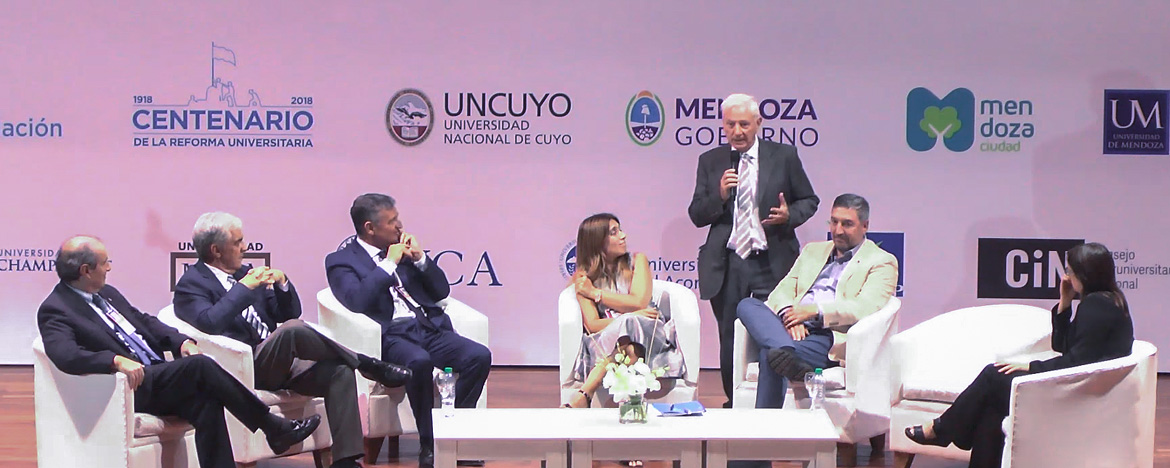Rector Juri: “Regional integration is a current challenge that retrieves the spirit of the University Reform”
Rector Juri: “Regional integration is a current challenge that retrieves the spirit of the University Reform”

UNC Rector Hugo Juri talked about the new challenges of Higher Education in Latin America in a session about the 1918 University Reform Centennial. The address took place at the Argentine International Conference on Higher Education (FIESA, in Spanish) which was held last week at Universidad Nacional de Cuyo -UNCUYO, Mendoza. [03.05.2018]
The first Argentine International Conference on Higher Education (FIESA) took place from Feb 27 to March 2. The conference gathered authorities and representatives from all around the world with the aim of discussing and sharing experiences about higher education internationalization processes.
UNC Rector Hugo Juri participated in one of the sessions about the University Reform Centennial together with UNCuyo Rector Daniel Pizzi; Argentina´s University Policies Secretary Danya Tavela; National Inter-University Council Vice President Guillermo Tamarit; Congresswoman Brenda Austin and the Ambassador of Spain in Argentina Francisco Javier Sandomingo Núñez.
In his speech, Rector Juri expressed that one of the main challenges for higher education in Latin América is integration. “We have to go back to the University Reform to face our current challenges, such as Latin American integration. “Integration should come through science and technology, via credit transfer systems and virtual environments”, he said.
He stressed the importance of the next Higher Education Regional Conference (CRES, in Spanish) that will take place this year at Universidad Nacional de Córdoba in the framework of 1918 University Reform Centennial´s commemoration. “Every Higher Education Regional Conference is very important because it is a milestone; our region is always the first one to outline proposals for the World Conference. It is a key event which goes beyond a mere statement and becomes a tool for action,” he said.
He also made reference to the importance of these Regional Conferences as encounters that contribute to strategic debates for the region because these are held every ten years. He specified that the first and the second ones were carried out in very critical moments in Latin America, especially for university and public higher education. He also suggested reading the Final Declaration of the 2008 Higher Education Regional Conference in which education is defined as a human right and a social public good. “The next challenge is to recover that declaration and face the current challenges,” he concluded.
Translation: Brenda Schauvinhold


